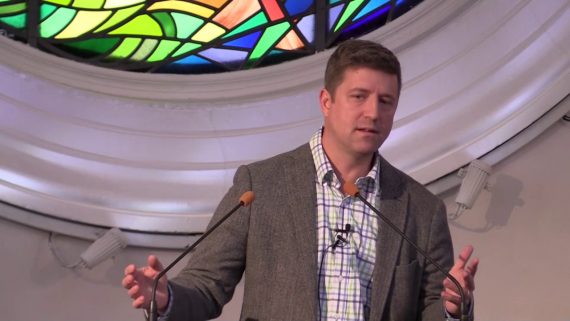
I have been teaching a series on the doctrine of divine election in Scripture, and so am pleased to welcome Shawn Lazar onto the show to discuss his book, (#AmazonAdLink) Chosen to Serve.
(#AmazonAdLink)  In his book, Shawn shows what the Bible teaches about election, and discusses several key passages which are used to defend various views of divine election. Shawn shows us how to understand these passages in light of the rest of biblical revelation about this tricky doctrine.
In his book, Shawn shows what the Bible teaches about election, and discusses several key passages which are used to defend various views of divine election. Shawn shows us how to understand these passages in light of the rest of biblical revelation about this tricky doctrine.
When you properly understand divine election, you will no longer find yourselves in angry and heated debates about who God chose for heaven from eternity past … nor will you be anxious about whether or not you yourself are chosen by God.
Instead, you will discover the beautiful biblical truth that election is to service, not to eternal life.
By listening to the podcast episode, you will also learn how to get 50% off Shawn’s book, Chosen to Serve. Or you can (#AmazonAdLink) pay full price on Amazon … if that is what you really want.
Here are other links we mentioned in the podcast interview:
- Free Magazine signup at FaithAlone.org
- Chosen to Serve at FaithAlone.org
- Shawn Lazar on Facebook
- The discussion on Cornelius by Ken Yates is a YouTube video found here:




 There are many related terms as well, such as calling, foreknowledge, ordained, and predestined, but by considering the term election, or to choose, the basic meaning of these others words will become clear.
There are many related terms as well, such as calling, foreknowledge, ordained, and predestined, but by considering the term election, or to choose, the basic meaning of these others words will become clear. He can elect believers or unbelievers.
He can elect believers or unbelievers. So Jesus is not referring to the calling or election of some to eternal life, but is teaching the consistent biblical message that while God desires that all people will serve Him, not all do, and so God chooses to work with those who participate with Him in what He is doing in the world.
So Jesus is not referring to the calling or election of some to eternal life, but is teaching the consistent biblical message that while God desires that all people will serve Him, not all do, and so God chooses to work with those who participate with Him in what He is doing in the world. Third, the gathering of the elect from the four winds does not refer to some sort of future rapture event, but to God gathering Jewish people from all over the world to return to Israel so that His plan and purposes for them can be fulfilled. In the context, Jesus mentions the people of Judea (Matthew 24:16), and references the image of the fig tree which is a symbol for Israel (Matthew 24:32-35).
Third, the gathering of the elect from the four winds does not refer to some sort of future rapture event, but to God gathering Jewish people from all over the world to return to Israel so that His plan and purposes for them can be fulfilled. In the context, Jesus mentions the people of Judea (Matthew 24:16), and references the image of the fig tree which is a symbol for Israel (Matthew 24:32-35). In John 15:16, Jesus provides an extremely clear statement about what it means to be chosen and why certain people are chosen by God, and by Himself.
In John 15:16, Jesus provides an extremely clear statement about what it means to be chosen and why certain people are chosen by God, and by Himself.













 Jesus is teaching people about the requirements of following Him and being His disciple. Clearly, nobody can ever fulfill or accomplish all these requirements, yet there is something in here for everyone, and nobody will ever get bored in trying to follow Jesus.
Jesus is teaching people about the requirements of following Him and being His disciple. Clearly, nobody can ever fulfill or accomplish all these requirements, yet there is something in here for everyone, and nobody will ever get bored in trying to follow Jesus.
 Since no person can ever fully learn everything Jesus has to teach, and no person can ever fully resemble and practice everything that Jesus leads us to do, all who are disciples of Jesus will spend their entire lives learning from Jesus and following in His footsteps.
Since no person can ever fully learn everything Jesus has to teach, and no person can ever fully resemble and practice everything that Jesus leads us to do, all who are disciples of Jesus will spend their entire lives learning from Jesus and following in His footsteps.
